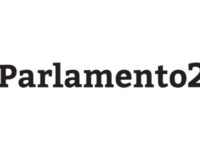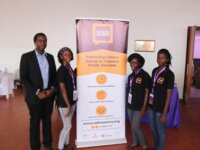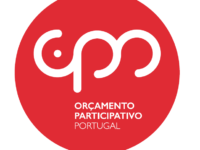The Artech project invites artists, entrepreneurs, and developers to use public data as a "raw material" for works of art based on traditional arts or digital media. Being a well-known and respectable medium to broad audiences, we see art, as an original and fresh way to expose new audiences to the importance of open data and its relevance. This is the first time that a government agency in Israel has directly sponsored a creative and innovative experience of this kind.
Innovation Tag Opengov: participation
In response to the generalized lack of political accountability and availability of public information, this online tool provides an open and qualified access to the Spanish Parliament’s activity, related to the implementation of the Agenda 2030.It promotes a transparent and participative implementation of this agenda and allows CSOs, policy makers and the media to monitor political proposals.The Spanish Government has included Parlamento2030 as one of the tools of its 2030 Agenda National…
Case Study
Innovative use of social media for co-creation of the 4th National Action Plan (2018-2020) –…
Innovative use of social media (Whatsapp) platform to increase participation and disseminate information for the creation of Paraguay's 4th National Action Open-Government Plan. These 14 online groups were created to allow citizens from the countryside, from marginalized and vulnerable groups, to be able to participate on an equal standing with other citizens from urban areas with access to policyholders. It is innovative because it was the first time we used this platform to involve citizens.
Not only is transparency in Brazil taken as the principle of publicity in public administration, but also as a Public Policy, led by integrated actions focused on achieving specific goals.
Brazilian Government has reaped concrete quantitative and qualitative transparency-driven results: saving of resources, reformulation of public policies and inhibition of misconduct and corruption acts.
The Transparency Portal is the core of the policy and central tool to promote results through transparency.
Conçus et impulsés par Etalab, Datactivist et Vraiment Vraiment dans le cadre de la démarche de gouvernement ouvert en France, le forum « Open d’État » est une rencontre entre agents publics impliqués dans des projets d’innovation, et des acteurs de la société civile (acteurs privés, associations, ONG…) lors de forums ouverts sur des projets spécifiques autour de la donnée. Ces Forums permettent d'expliquer les projets et de recueillir les demandes des citoyens.
The justice system is fundamental for democracy. To ensure citizen confidence, to transparent all its actions and to ensure the legitimacy of judicial decisions, the Judicial Branch joined the worldwide effort to promote open government partnership with the creation of an institutional policy of Open Justice, unique in the region, which promotes judicial management based on transparency, citizen participation and institutional collaboration. It will benefit all users of the Judicial Branch.
2018 was the year of reflection on the future of Europe. In order to understand the hopes and fears of citizens of Latvia regarding the future of European Union, more than 1500 citizens have been engaged in consultations that took place both in the regions of Latvia and online. Consultations were co-organized by state institutions and civil society organisations using various experimental formats.
East Africa has an urgent need for innovative accountability mechanisms, as many public services are inefficient and corrupt. SEMA helps to improve the quality of public service delivery, by gathering real-time citizen feedback and presenting this data in digestible formats. We use low-tech tools, such as custom-made hardware devices and interactive voice response technology, that help citizens from all backgrounds to have a voice in evaluating their public services.
With the drafting of its first Constitution, Mexico City had a great opportunity: to explore innovative ways of crowd-sourcing this historic document, setting an example to other cities in the world on how to design important democratic experimentation at the scale of a megalopolis. The result of the entire Constitutional process is a forward-thinking document with progressive social policy and human rights at its heart. It became a legal reality in September 2018.
The Portugal Participatory Budget (PPB) is a democratic, direct and universal process that allows civil society to decide on public investments in different governmental areas.
It is the first nationwide public participatory budget in the world, enhancing its originality. PPB helps to bring people closer to politics and decision-making, while promoting a deeper connection between regions, integrating the coastline and interior areas, as well as the rural and urban areas.





